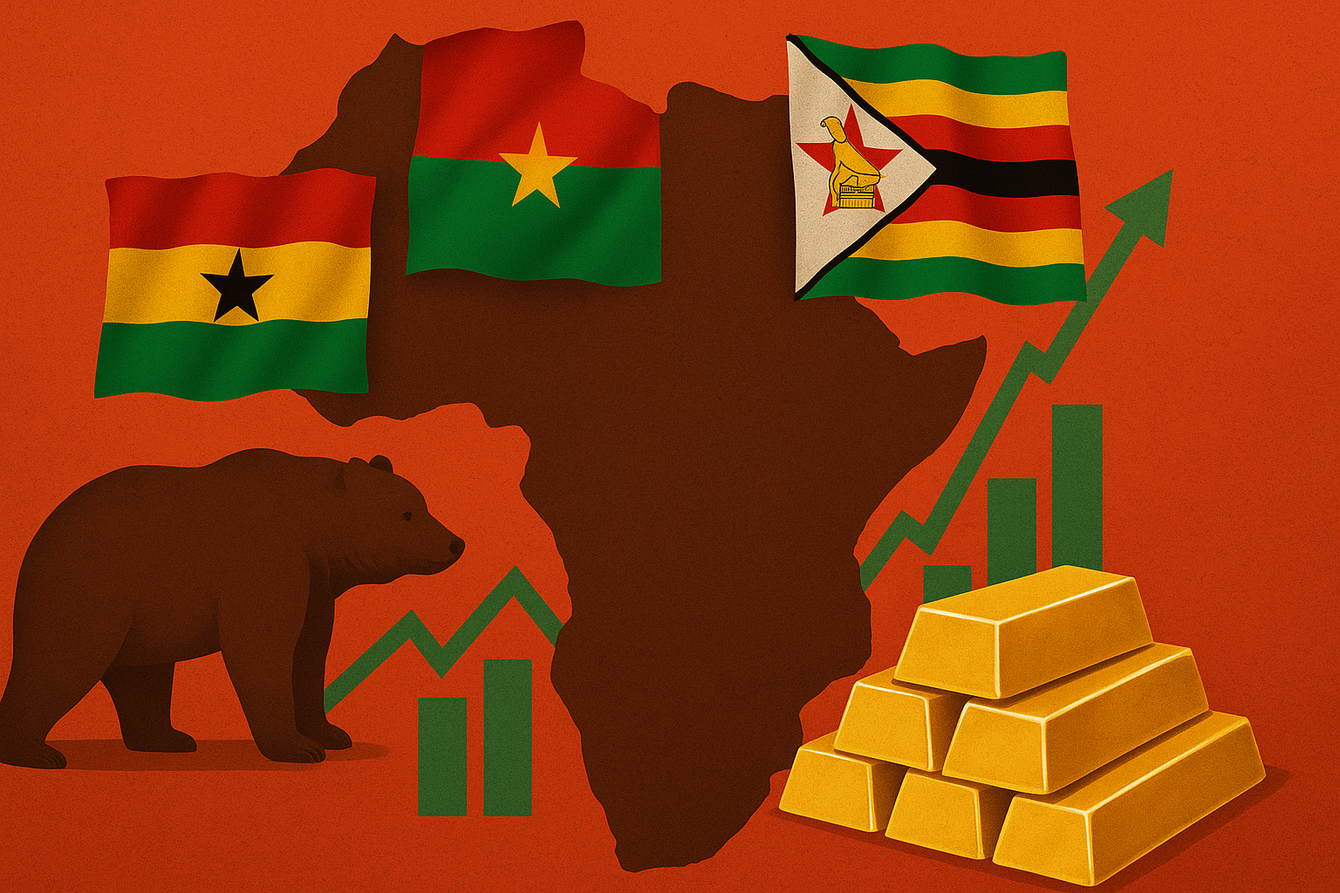
(Kitco News) – Central banks in sub-Saharan Africa are accelerating their gold purchases to hedge against the growing macro instability in the United States and rising geopolitical risks around the world.
“While South Africa has historically maintained gold in its reserves, some sub-Saharan African countries are currently establishing domestic gold purchasing programs, capitalizing on abundant local gold deposits,” wrote Edith Mutethya for China Daily on Wednesday. “Leading the trend is Ghana, which has launched its domestic gold purchasing program.”
According to BMI, a unit of Fitch Group, both the volume and the value of the West African country’s gold reserves have surged, with Ghana’s total gold holdings rising 255% from 8.7 tonnes to over 31 tonnes between the second quarter of 2022 and the first quarter of 2025. And earlier this year, Ghana signed an agreement with nine mining companies to directly purchase 20% of their gold output at a 1% discount to the London Bullion Market Association (LBMA) price.
Ghana’s burgeoning gold reserves are also having a strong positive impact on the local currency. Orson Gard, a senior analyst at BMI’s Sub-Saharan Africa Country Risk team, told China Daily that the surge in gold prices has made the Ghanaian cedi one of the world’s best-performing currencies against the US dollar.
“We are seeing a similar move across the region,” Gard said. “Last year, Tanzania offered payment in local currency at a price published daily by the country’s mining commission.”
Nigeria launched its own national gold purchase program last year, and the country has passed legislation to strengthen the Central Bank of Nigeria’s ability to acquire domestically produced gold, according to BMI data.
“This year, several other markets have taken similar steps, with Namibia and Rwanda making concrete moves to diversify reserves through gold, while central bank governors in Kenya and Uganda have publicly floated similar ideas,” Gard said.
Meanwhile, in Burkina Faso, the government has nationalized gold mines and established a National Gold Reserve with the goal of stockpiling a minimum of 5% of annual domestic production, while Zimbabwe recently relaunched a gold-backed currency, the Zimbabwe Gold, in an effort to stabilize the country’s financial system.
“This does point to an increased confidence across the region in the ability of the metal to underpin stability,” he noted.
But Gard warned that these new national gold accumulation strategies are not without risk, as a sudden drop in global gold prices could have an outsized impact on sub-Saharan African countries that have rapidly increased gold as a share of their total reserves, as many began accumulating at relatively high prices.
He said that over the medium term, a gradual unwinding of gold price gains could expose these markets to long-term losses, which would not only weaken reserve adequacy but also undermine the credibility of their central banks’ policies.
Ghana, Tanzania, and Uganda are especially vulnerable in the event of a sharp drop or long-term easing in gold prices, Gard said, because they rely heavily on gold exports for foreign exchange earnings in addition to actively building up their own reserves.
“A decline in gold prices would directly erode the value of their reserves while also reducing export receipts, which in turn would weaken overall foreign currency inflows,” he said.
Another key challenge of this strategy is liquidity, as it is difficult to rapidly convert gold into more liquid assets like foreign currencies or short-term securities, which is why many central banks have historically held gold abroad in major financial hubs to streamline convertibility.
Ernest Hoffman is a Crypto and Market Reporter for Kitco News. He has over 15 years of experience as a writer, editor, broadcaster and producer for media, educational and cultural organizations. Ernest began working in market news in 2007, establishing the broadcast division of CEP News in Montreal, Canada, where he developed the fastest web-based audio news service in the world and produced economic news videos in partnership with MSN and the TMX. He has a Bachelor’s degree Specialization in Journalism from Concordia University. You can reach Ernest at 1-514-670-1339.
Shared by Golden State Mint on GoldenStateMint.com














